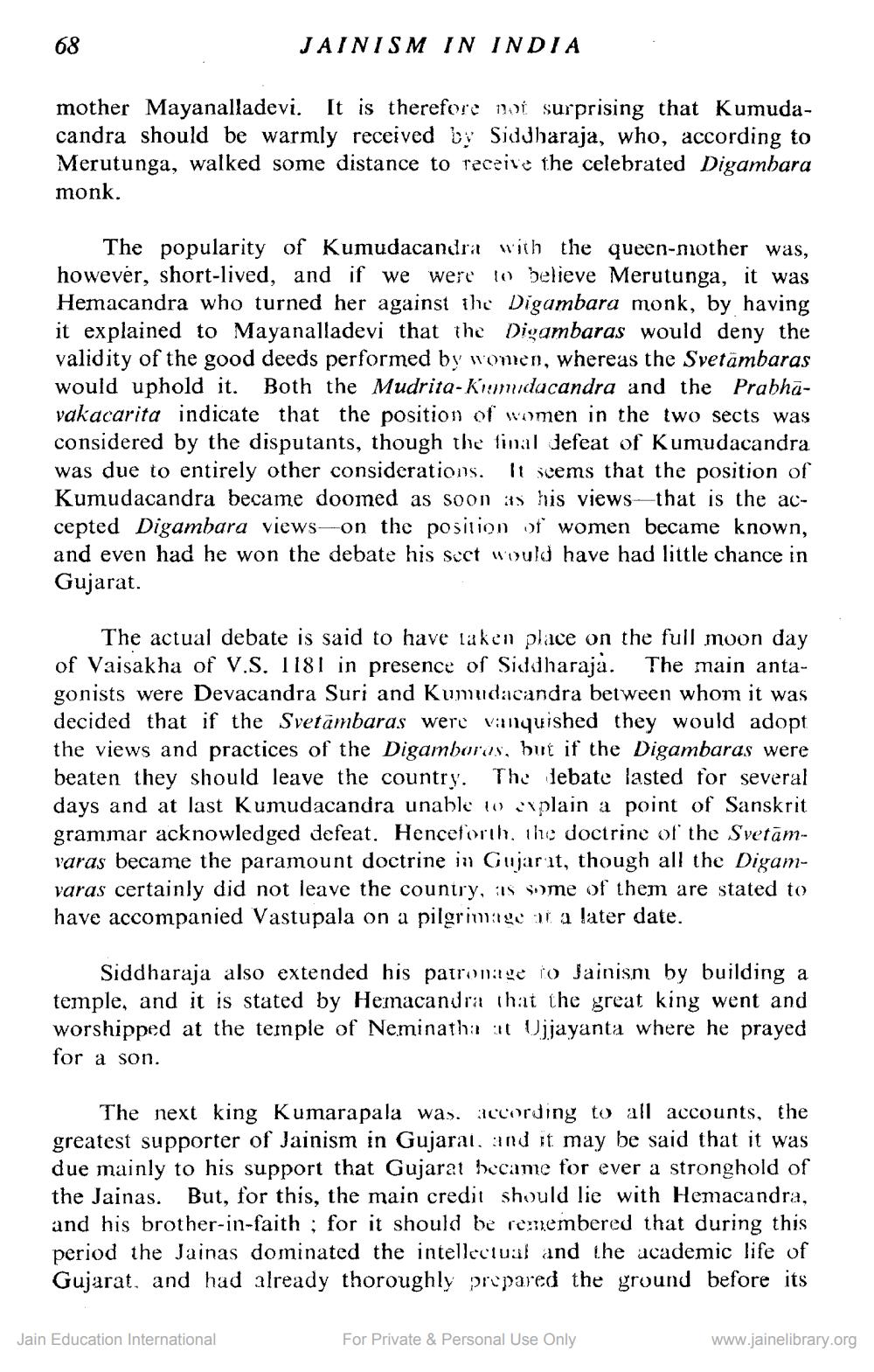________________
68
JAINISM IN INDIA
mother Mayanalladevi. It is therefore not surprising that Kumudacandra should be warmly received by Siddharaja, who, according to Merutunga, walked some distance to receive the celebrated Digambara monk.
The popularity of Kumudacandra with the queen-mother was, however, short-lived, and if we were to believe Merutunga, it was Hemacandra who turned her against the Digambara monk, by having it explained to Mayanalladevi that the Digambaras would deny the validity of the good deeds performed by women, whereas the Svetämbaras would uphold it. Both the Mudrita-Kumidacandra and the Prabhuvakacarita indicate that the position of women in the two sects was considered by the disputants, though the final defeat of Kumudacandra was due to entirely other considerations. It seems that the position of Kumudacandra became doomed as soon as his views that is the accepted Digambara views- on the position of women became known, and even had he won the debate his sect would have had little chance in Gujarat.
The actual debate is said to have taken place on the full moon day of Vaisakha of V.S. 1181 in presence of Siddharajà. The main antagonists were Devacandra Suri and Kumudacandra between whom it was decided that if the Svetambaras were vanquished they would adopt the views and practices of the Digamboras, but if the Digambaras were beaten they should leave the country. The debate lasted for several days and at last Kumudacandra unable to explain a point of Sanskrit grammar acknowledged defeat. Henceforth, the doctrine of the Svetāmvaras became the paramount doctrine in Gujarat, though all the Digamvaras certainly did not leave the country, as some of them are stated to have accompanied Vastupala on a pilgrimage at a later date.
Siddharaja also extended his patronage to Jainism by building a temple, and it is stated by Hemacandra that the great king went and worshipped at the temple of Neminatha at Ujjayanta where he prayed for a son.
The next king Kumarapala was. according to all accounts, the greatest supporter of Jainism in Gujarat, and it may be said that it was due mainly to his support that Gujarat became for ever a stronghold of the Jainas. But, for this, the main credit should lie with Hemacandra, and his brother-in-faith; for it should be remembered that during this period the Jainas dominated the intellectual and the academic life of Gujarat, and had already thoroughly prepared the ground before its
Jain Education International
For Private & Personal Use Only
www.jainelibrary.org




